To broaden students' understandings, enhance their knowledge of Chinese civilization and ecology in China's inland areas, and enrich their social awareness and field study capabilities, the Faculty of Hospitality and Tourism Management at Macau University of Science and Technology organized an experiential learning visit to Dali Bai Autonomous Prefecture and Kunming City in Yunnan Province from October 13, 2024 to October 20, 2024. Assistant Professor Kaihan Yang led the "Western Yunnan Ecological Civilization and Cultural Heritage Experiential Learning" activity, with 15 undergraduate, Master’s, and Ph.D. students participating.
The team conducted an in-depth study of national, provincial, and prefecture-level heritage buildings in the Dali Bai Autonomous Prefecture. They also engaged in a detailed discussion with Brian and Jeanee Linden, founders of The Linden Centre and recipients of the United Nations “China Social Impact Award,” on their experiences in preserving traditional culture and revitalizing cultural heritage in rural China.
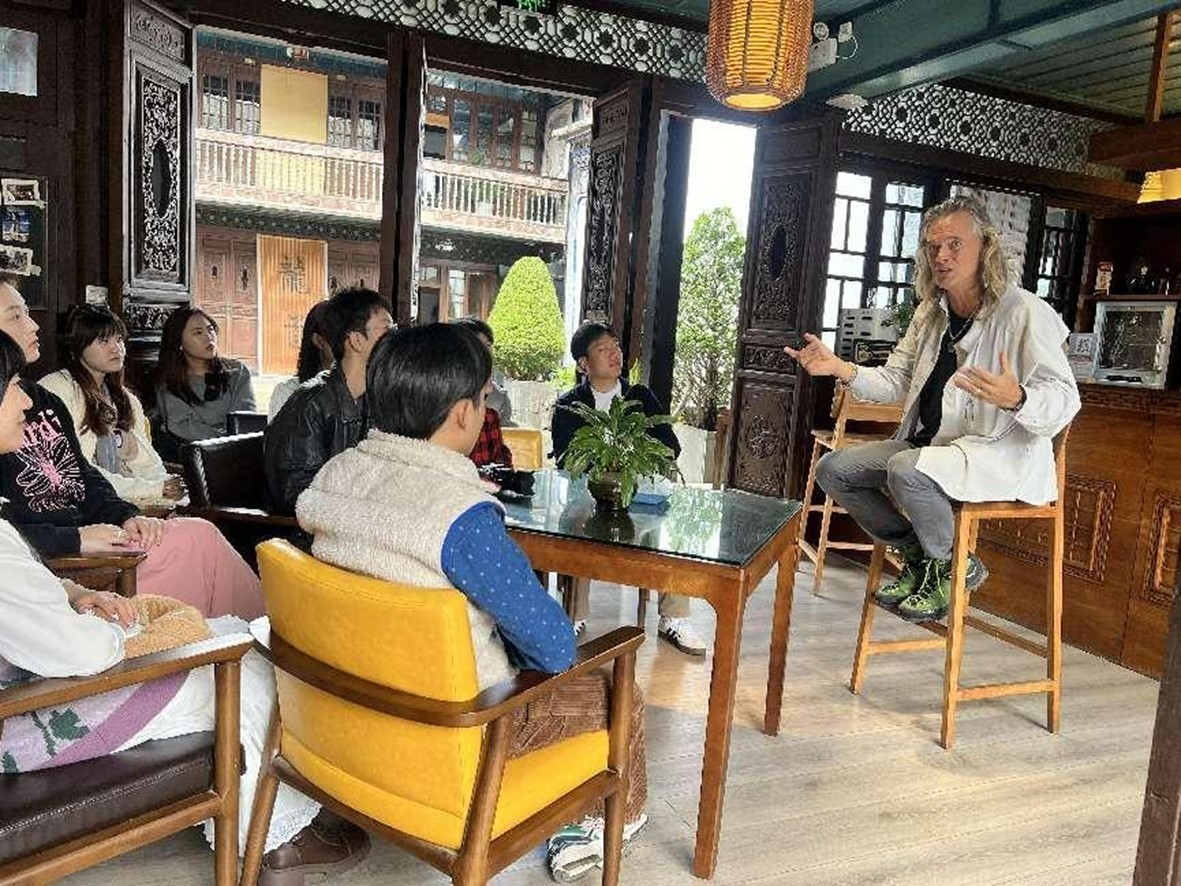
Brian Linden, Founders of The Linden Centre Communicated with FHTM Students and Teachers
The team visited Shilong Village in Shaxi, a former nationally designated poverty-stricken village, to gain an in-depth understanding of how film tourism and the hospitality industry have helped the local community achieve poverty alleviation. They also learned about the complexities and challenges of rural governance in China (see Figure 2). Faculty and students were invited to participate in the recording of the Shenzhen Satellite TV documentary My China Connection—They Call Me the Foreign Village Chief and were interviewed as part of the program.
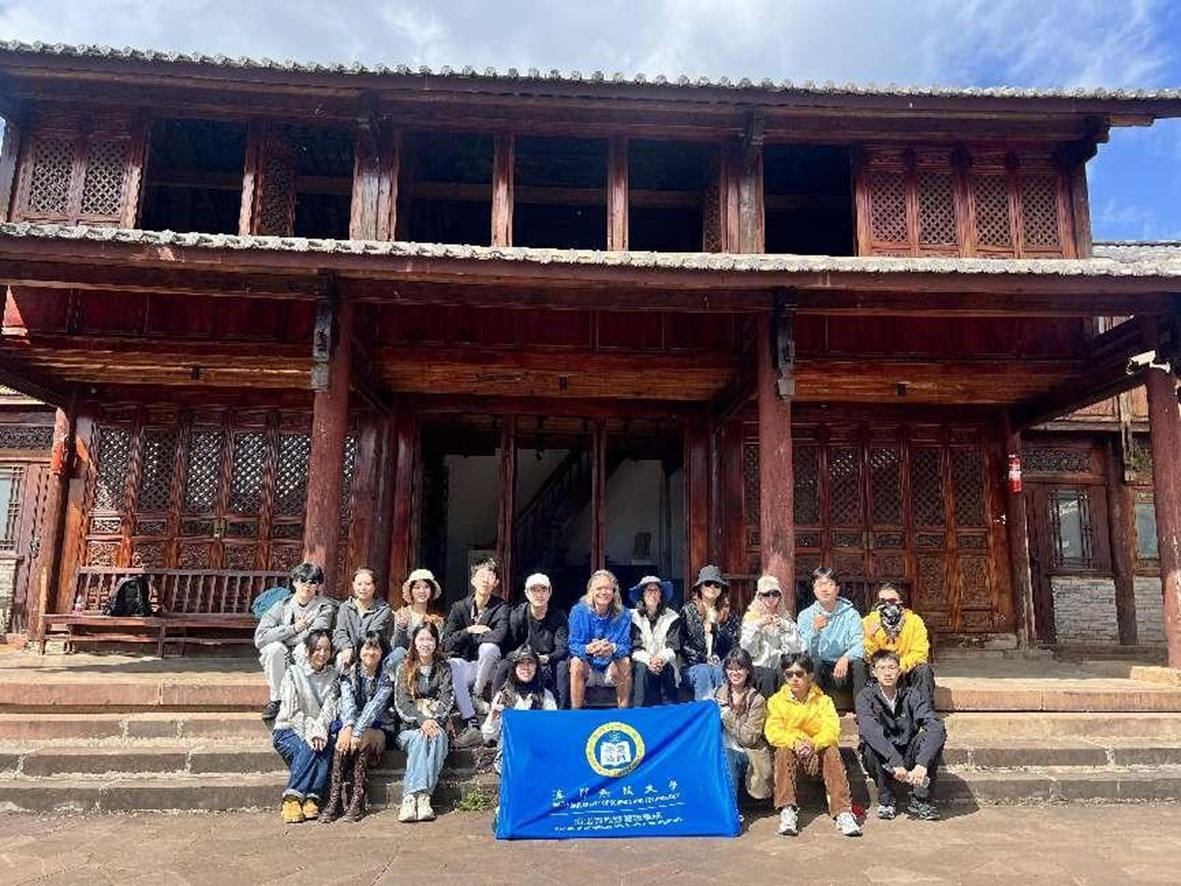
The Team Gained a Deep Understanding of the Relationship Between Tourism and Poverty Alleviation
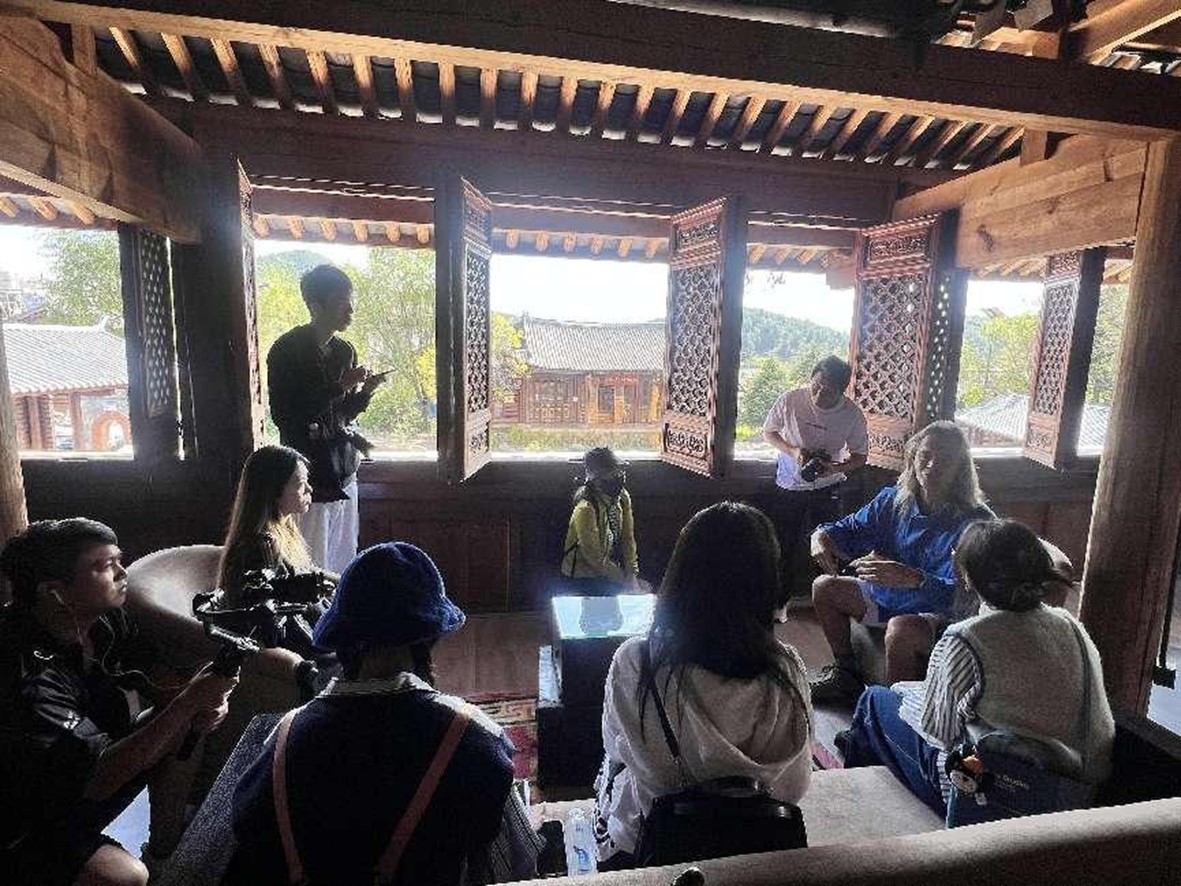
The Team Participated in the Filming of a Documentary for Shenzhen Satellite TV
Guided by local villagers, the faculty and students undertook a 14-kilometer hike on Shibao Mountain, examining its ecotourism resources, which are based on the mountain's grotto murals and the natural landscape of Cangshan Mountain.
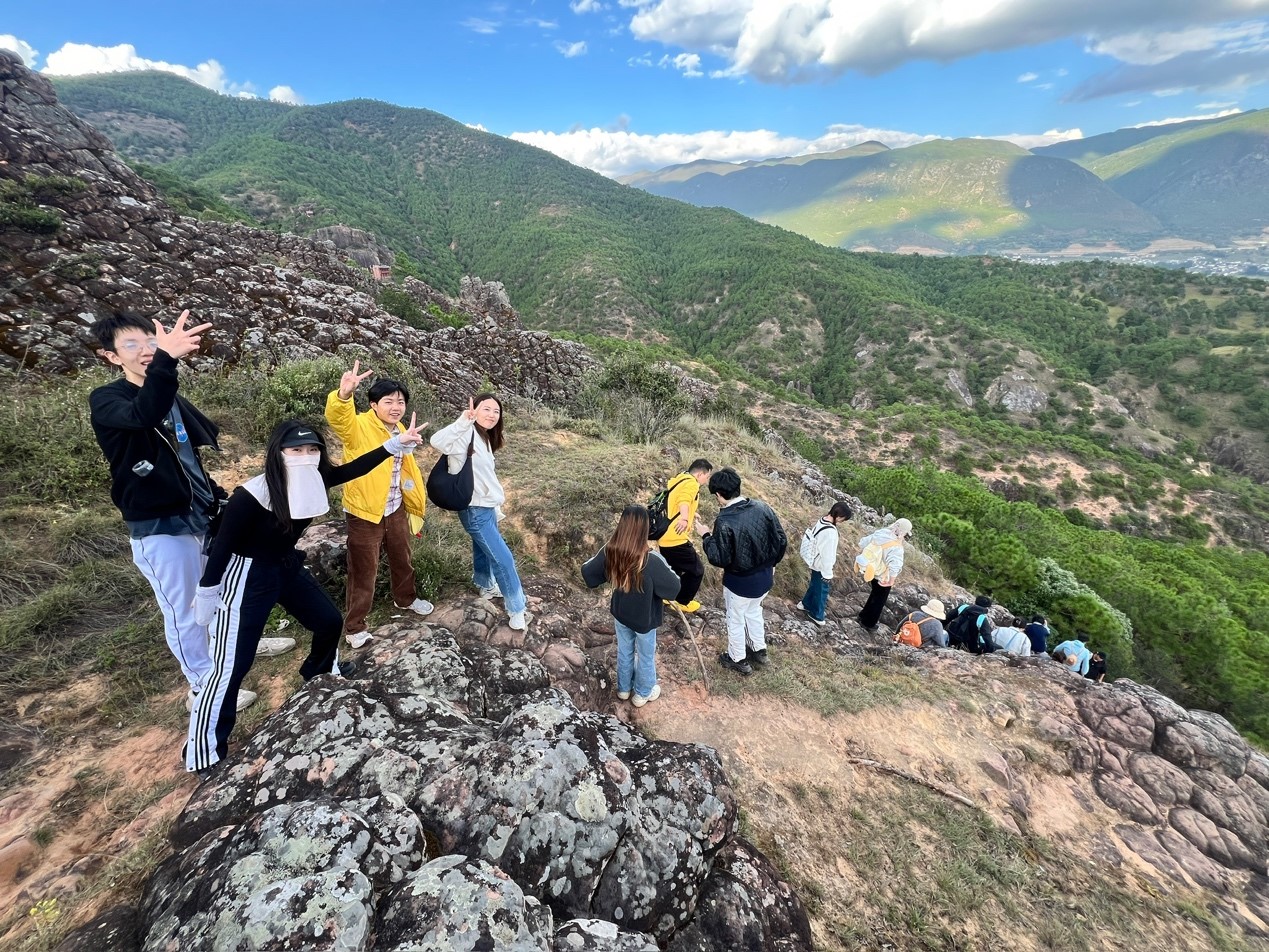
The Team Hiked on Shibao Mountain
The faculty and students held a discussion with relevant representatives from China Tourism Group to gain an in-depth understanding of projects based on the Dali Erhai Ecological Corridor, including smart tourism, Erhai ecological protection, rural governance, and economic diversification.
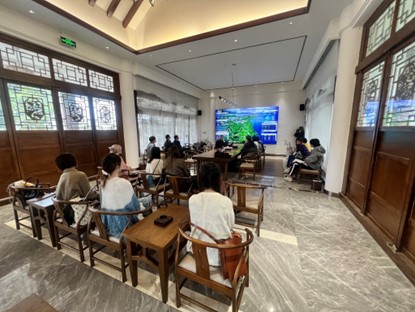
Meeting of Dali Erhai Ecological Corridor Project
The faculty and students visited the Tourism College of Dali University, where they held an academic exchange forum with faculty and students from the college. They learned about the college’s curriculum, research developments, and industry experience as the tourism college in China that attracts the most international students from Southeast Asia, and they achieved productive outcomes from this exchange.
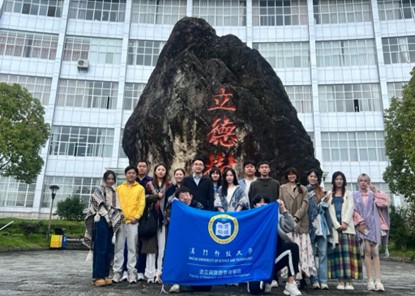
Visited the Tourism College of Dali University
The team visited the Department of Ethnology and Sociology at Yunnan University to engage in an academic exchange with faculty and students. Both teams shared their research progress and engaged in a friendly academic debate.
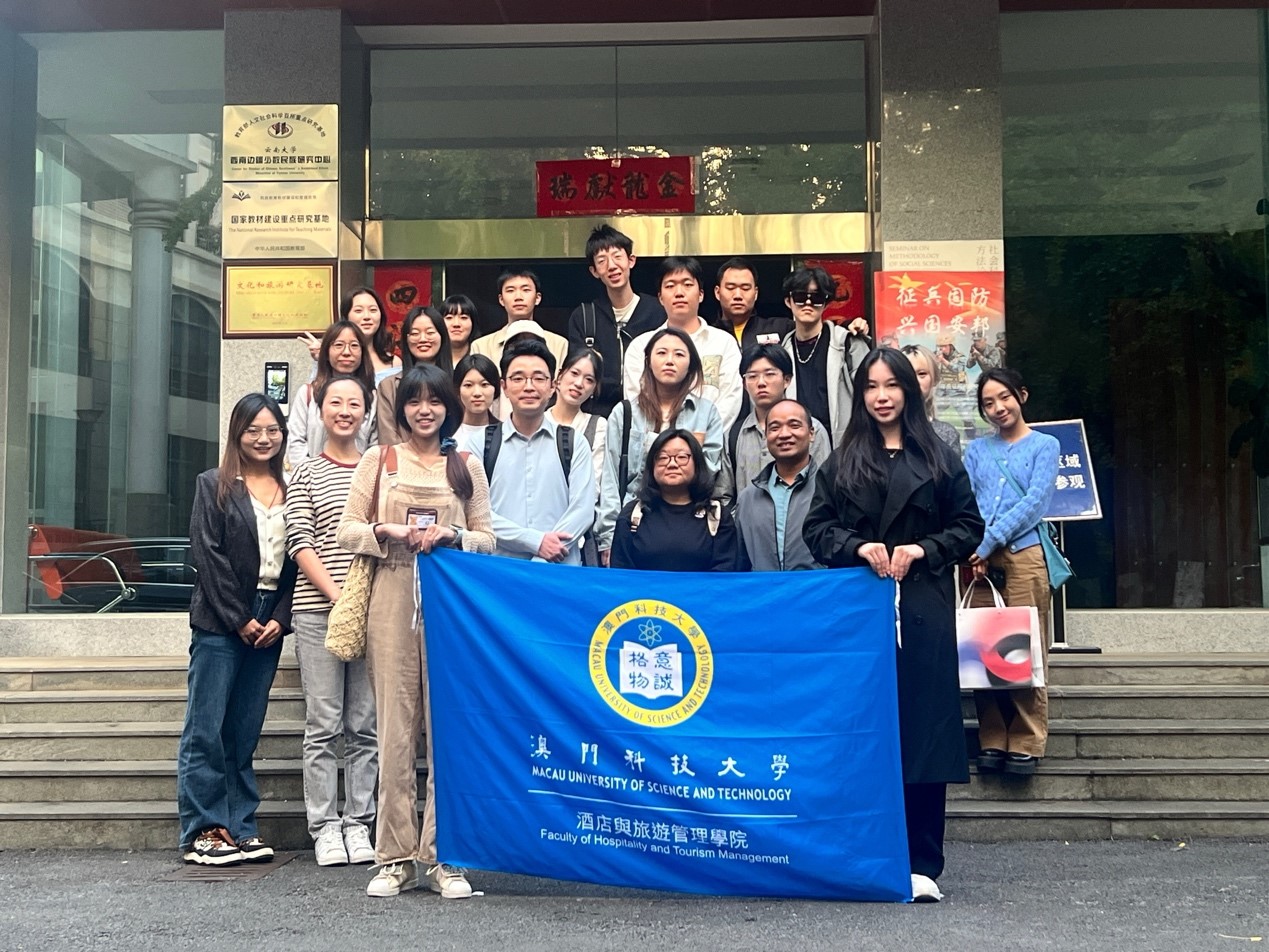
Visited the Department of Ethnology and Sociology at Yunnan University
This activity offered students from the Faculty of Hospitality and Tourism Management at Macau University of Science and Technology a unique perspective. Through collaboration and exchanges with major universities along the western Yunnan region, as well as ecological civilization and social context explorations, they examined valuable topics such as ecosystem cultural services, cultural heritage preservation and revitalization, rural gentrification, tourism commercialization, and the impacts of cultural homogenization. They also explored the roles of artificial intelligence and big data in tourism and social governance and the challenges tourism development poses to social identity and reflected on a suitable path for tourism diversification and sustainable development in Macau. This activity provided a multicultural learning environment, allowing students to experience different regions' cultures and ecological environments firsthand and enabling them to view the relationship between tourism development and ecological conservation from a global perspective.





